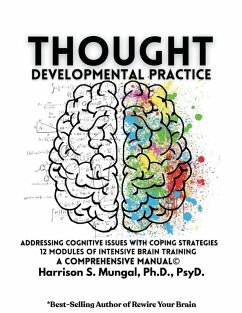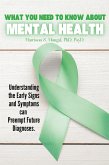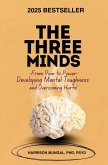Thought Developmental Practice (TDP) originated from the relentless efforts to assist individuals battling mental health afflictions, including depression, anxiety, psychosis, and addiction, among others. The workbook at hand is meticulously constructed around modules devised to assist individuals dealing with substance abuse, addictions, and pertinent mental disorders. These modules are organized into twelve distinct sections, each replete with practical and stimulating activities. The overarching objective is to address addictions, anxiety, depression, and prevalent mental health conditions, with an aspiration for every participant to triumph over and master their mental health. Mental well-being is susceptible to a multitude of factors, such as substance use, trauma, abuse, psychosocial stress, medical complications, familial discord, genetic predispositions, and neurochemical imbalances. Safeguarding mental health from these influences necessitates comprehending methods to activate the brain, thereby releasing serotonin and dopamine. This understanding can transform mental health from a mere trait to a definitive diagnosis, employing resilience to maintain focus and guide thoughts toward positivity. The essence of this workbook lies in the employment of straightforward activities, principles, and concepts systematically arranged to cultivate the mind and reshape thought patterns. Research conducted with live patients attested to the positive impact of these modules on mental states, notably enhancing mood and diminishing anxiety. The findings also revealed a marked reduction or cessation of substance use, particularly concerning cannabis. Some patients, especially those contending with psychosis, were able to supplant cannabis use with the healthy coping mechanisms delineated in the modules. This workbook serves as a guide for patients or clients to access and understand their "memory cards," which are often the root causes of anxiety, mood disorders, and addiction issues. It is a tool to bring insight and clarity, enabling individuals to grasp their internal dynamics and interpersonal relationships. The process assists in closing chapters on issues stemming from unresolved past situations and crafting new positive memory cards to replace the old, negative ones. The ambition of this workbook is not to obliterate emotions or the individual's thought process but to enrich coping strategies with practical, uplifting ideas. It seeks to guide individuals in harnessing existing knowledge and behaviours to aid themselves and others. The thrust of Thought Developmental Practice is to enable people to unearth the underlying sources of their unhappiness by excavating detrimental habits, thoughts, and ideas and supplanting them with value-driven concepts that instill a sense of self-worth. Exploring causes, effects, and solutions is embarked upon, striving to identify and overcome the emotional and cognitive obstacles impeding progress. It is recognized that some thoughts and emotions, shaped or tainted during childhood, can amplify life's challenges in adulthood. Certain feelings, potentially excruciatingly painful, lie buried deep within the heart's core, often feared and unacknowledged. These suppressed emotions may function like a ticking time bomb, capable of catastrophic detonation. Therefore, it becomes imperative to recognize and address these profound, painful emotions and turbulent thoughts before they gain mastery. Early warning signs may manifest, analogous to the rumblings of a volcano prior to eruption, and the goal is to intervene before a full-blown crisis unfolds.
Bitte wählen Sie Ihr Anliegen aus.
Rechnungen
Retourenschein anfordern
Bestellstatus
Storno








